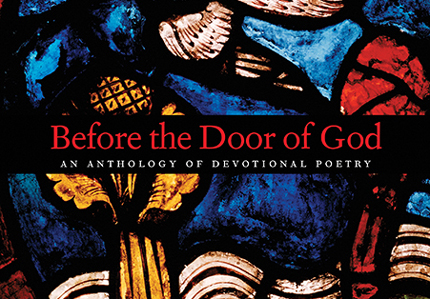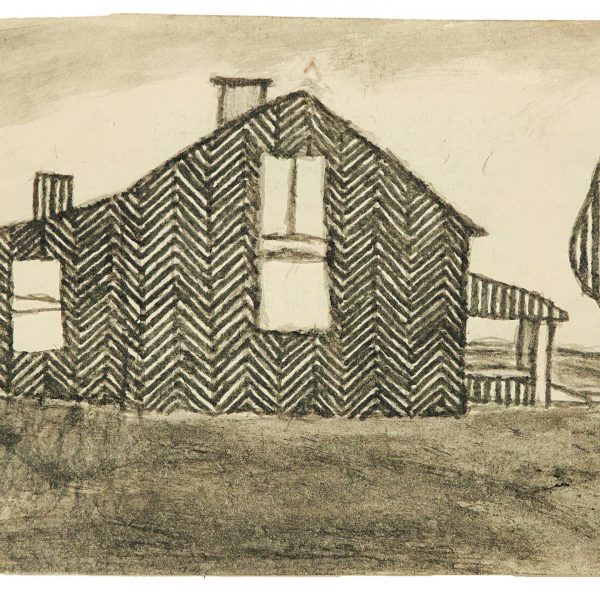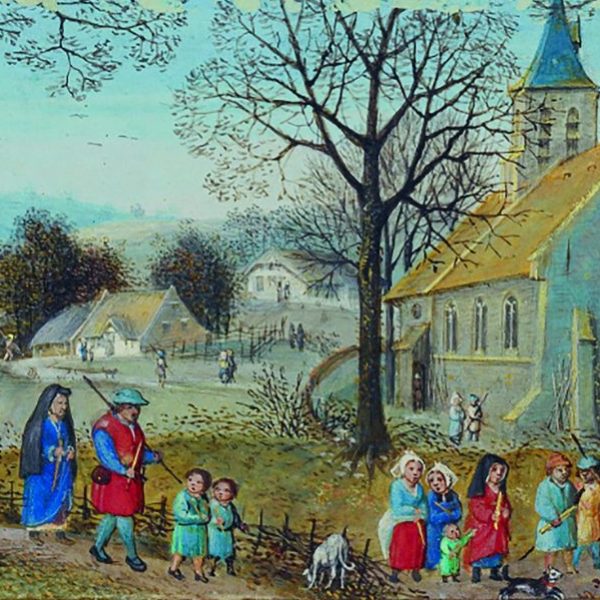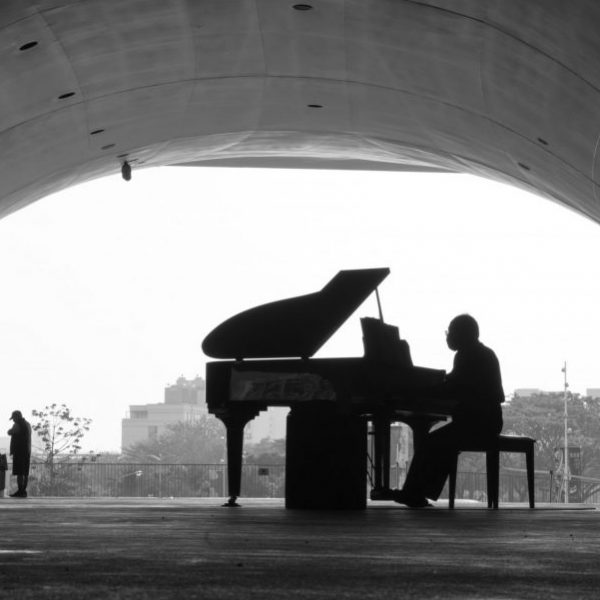Q & A with the Authors of Before the Door of God: An Anthology of Devotional Poetry
With the holiday season in full-swing, Christmas carols are playing every where you go. These hymns are part of a much larger tradition of devotional poetry extensively laid out in Before the Door of God, an anthology edited by Jay Hopler and Kimberly Johnson. We spoke with Hopler and Johnson recently on how the anthology came together; read on for their perspective on the cultural and spiritual diversity in the three-thousand-year history of devotional poetry.
Yale University Press: What were your selection criteria for the anthology?
Jay Hopler and Kimberly Johnson: We concentrated our selections on the English-speaking poetic tradition, as well as on some of the cultures upon which that tradition is based. Within that broad field, we focused our attention on lyrics that were colloquial, exhibiting some kind of address to the divine, however that term might be defined.
YUP: What are some of your favorite lines from the anthology?
JH and KJ: Our favorite lines seem to change by the day. But some lines that are currently ravishing us include the first two lines from Gerard Manley Hopkins’s poem “God’s Grandeur”:
“The world is charged with the grandeur of God./ It will flame out, like shining from shook foil.”
These lines crackle with Hopkins’s characteristic energy and sonic intensity. We also love “Wild Nights” by Emily Dickinson, which begins,
“Wild Nights–Wild Nights! / Were I with thee / Wild nights should be / Our luxury!”
YUP: How did the devotional lyric originate in the Western world?
JH and KJ: It grew out of two overlapping traditions: the hymnic mode which was used for ritual celebration and petitions to the gods, and the performance of inturned, private expression in lyric poetry. These two modes of writing were alive and well in ancient Greece and Rome, and they filtered through western culture, aided in part by the literacy that attended upon the spread of Christianity.
YUP: Why is the literary genre of the lyric well-suited to devotion?
JH and KJ: We examined the devotional lyric particularly because of the ways that devotion and lyric are practices so similar to one another. Both involve speech in isolation in the process of working to understand that which may be unknowable. It should be said that this is not a collection of religious verse; rather, it’s an anthology that recognizes that the devotional posture has become a useful poetic tool for generations of writers who are not necessarily religious. In this particular volume, we have chosen to focus more on these poems as literary artifacts rather than spiritual exercises per se.
YUP: You mention in your preface that as the English-speaking world is becoming more culturally diverse, “its poetry likewise reflects a wider spectrum of devotional perspectives.” What are some examples of how the later sections of the anthology demonstrate more diverse perspectives in devotional lyric poetry?
JH and KJ: The twentieth century really sees a more prominent representation of non-Christian religious poems in English. For much of its early development, English poetry was a product of an almost universally Christian paradigm. But more recent centuries have seen the integration of near-Eastern and Eastern faith traditions into English speaking cultures, so naturally later poetry registers that increased diversity. We are pleased to be able to include in this anthology poetry that reflects the widening influence of non-Christian traditions in the Anglophone canon.
YUP: What are some themes that have persisted in devotional lyric poetry across the centuries and cultures?
JH and KJ: One major theme involves unknowability and the limits of humanity’s understanding. Other recurrent ideas include the isolation of the individual, the ever-evolving grappling with the character of the supernatural, and those perennial existential questions about why life is difficulty and what the meaning of life is.
YUP: Why does devotional lyric poetry continue to appeal to poets and readers today?
JH and KJ: Because it is one of the few literary modes available to poets today that allows for some measure of genuine emotion without running the risk of seeming trite. So much of our contemporary moment is dominated by irony and self-deprecation, which are really technique rather than worldviews, and this long and rich tradition of the devotional lyric continues to provide a space for sincerity, perhaps because it begins from a point of vulnerable intimacy.
Jay Hopler is associate professor of English at the University of South Florida. He received the prestigious Yale Series of Younger Poets Award in 2005, as well as several other awards, for his first book of poems, Green Squall. He lives in Tampa, FL. Kimberly Johnson is associate professor of English at Brigham Young University. She is the author of two collections of poetry and a translation of Virgil’s Georgics, as well as a number of scholarly works on Renaissance literature. She lives in Salt Lake City, UT



























